
CONTENTS
 The political emergence of the Boomers The political emergence of the Boomers
 In the early 1960s, youthful idealism has an innocence about it In the early 1960s, youthful idealism has an innocence about it
 But
as the 1960s progress, the Boomer youth are more "counter-cultural" But
as the 1960s progress, the Boomer youth are more "counter-cultural"
 The youthful counter-culturalism becomes increasingly
militant The youthful counter-culturalism becomes increasingly
militant
 The
October 1967 March on the Pentagon The
October 1967 March on the Pentagon
 The
youthful "concerns" become angrier The
youthful "concerns" become angrier
The textual material on this webpage is drawn directly from my work
America – The Covenant Nation © 2021, Volume Two, pages 203-204.
|

 |
THE POLITICAL EMERGENCE OF THE BOOMERS
|
|
|
|
Meanwhile, back on the American home front,
America's young Boomer generation was just reaching early adulthood by
the mid-1960s. They were eager to become heroes by challenging on all
fronts any form of suspicious social "authority," something they had
been prepared for since their early school years. Unfortunately, the
authority at hand to challenge was not some conspiring Communist
intruders into American life (that fear had proved groundless).
Instead, the only authority that otherwise stood before them available
to be challenged by young crusading hearts was their Middle-Class
parents' own highly patriotic political-cultural legacy.
Also, much had been made publicly about
the blemishes afflicting American society and the need for deep reform.
Clearly – to the Boomers at least – the America that the Middle-Class
American Vets lauded as the best of all possible worlds was an idea
itself that needed to be rejected as foolish – even dangerous – blind
patriotism. Thus (with considerable encouragement from the
intellectuals who commanded the university classrooms the Boomers
attended in increasing numbers), virtually in every aspect of
Middle-Class life that stood before the Boomers as America's
traditional cultural legacy they found some element to be challenged –
if indeed not even the whole Middle-Class cultural package to be put
aside in the name of serious "progress."
Furthermore, they were a highly-pampered
generation. They had been well provided for by an indulgent Vet
generation anxious to see that their Boomer offspring had every
material advantage that the Vets themselves had been missing in their
own youthful years lived during the Depression (and then World War
Two.) Sadly, Boomers therefore were used to being taken care of. It was
their basic entitlement as Americans.
Indeed, as the "entitled generation,"
Boomers saw society as something that owed them support and not the
other way around. Happiness was "personal freedom" – in other words,
not having to do anything you did not feel inspired to do. If you did
not like the social situation you found yourself in, you were invited
to "do your own thing" and dump the social ties, whether a job, or a
marriage, or any social obligation that others were trying to lay on
you.
The growth of Johnson's new federal state
thus worked nicely to the Boomers' advantage, because, despite their
supposed distrust of public authority, Washington's takeover of the
management of society allowed them to escape their own social
responsibilities in order to give full attention to their own personal
agendas (usually the advancement of their schooling, and ultimately
their professional careers).
But in the meantime, there was a huge war
going on in Vietnam, caused by "American Imperialism," (actually
Johnsonian folly) that needed to be ended … immediately. Thus, it was
the Boomers' heroic duty to oppose the war by whatever means necessary.
The great cultural clash over the Vietnam War
The Vets were perplexed, even irate.
Wasn't America trying to bring democracy to Vietnam? Did the Boomer
youth not see the importance of setting up a viable democracy in South
Vietnam, one that would act not only as a barrier against Communist
expansion coming from the North, but like America itself, serve as a
beacon of light, lighting the way to other countries in the region to
find democracy for themselves as well? How in the world could the
Boomers be missing the point?
But the Boomers instead saw simply raw
imperialism, American imperialism, motivating the Vietnam venture. This
was pure evil: the strong dictating their social-cultural organization
to the weak, the very thing the Boomers had been carefully programmed
to resist, as heroically as possible.
Thus a war of words broke out between the
two generations, words that actually had more emotional content than
true rationality. Thus it was that "democracy" and "imperialism" were
becoming mere slogans rather than items of carefully-thought-through
debate. And that sloganeering grew hotter as the 1960s advanced.
|


|
IN
THE EARLY 1960s YOUTHFUL IDEALISM HAS AN INNOCENCE ABOUT
IT
|

|
|
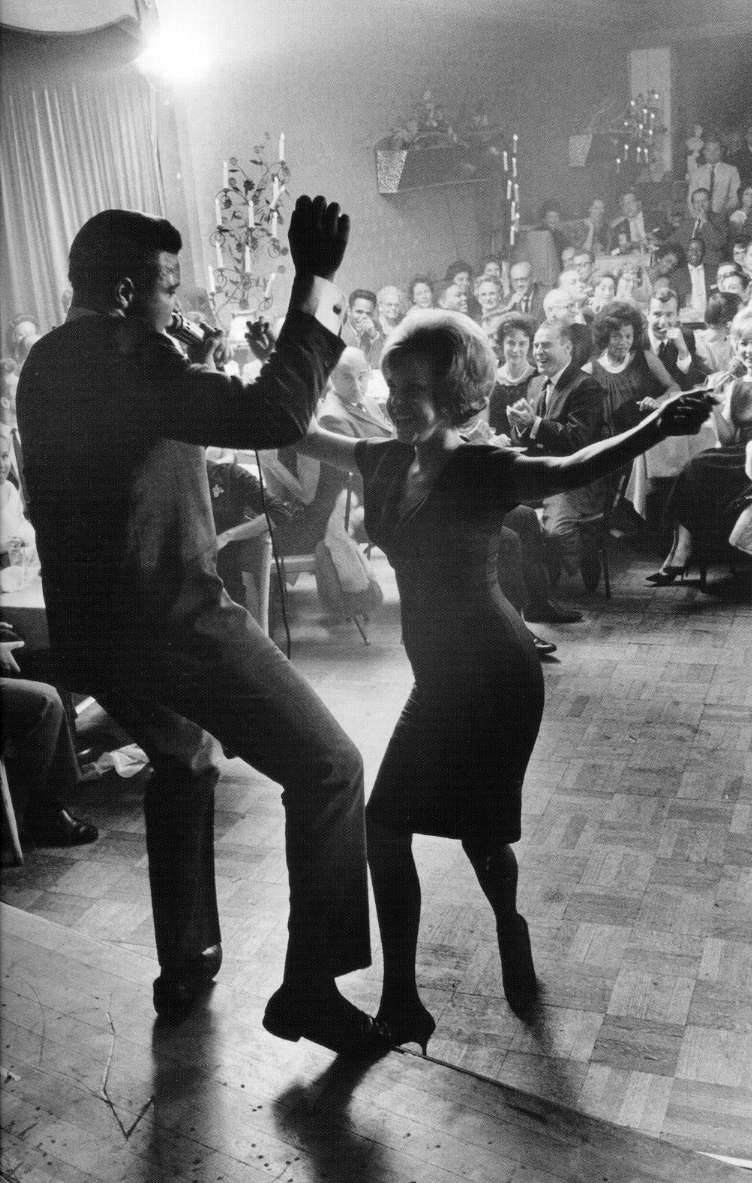
Chubby Checker showing a
young lady theTwist
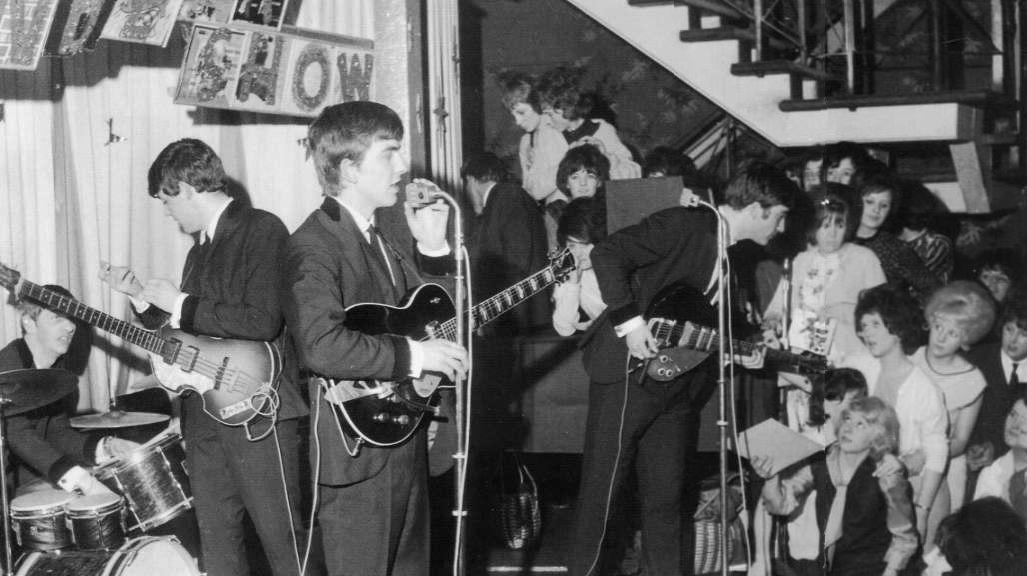
The Beatles in Liverpool's
Cavern Club – 1963
(just prior to their American
breakthrough in January of 1964)
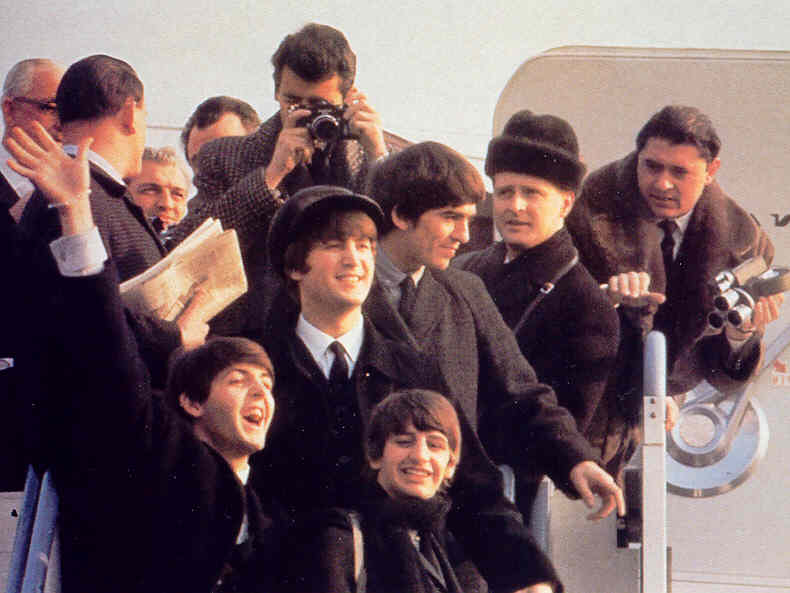
The Beatles arrive in America
to take it by storm – February 1964
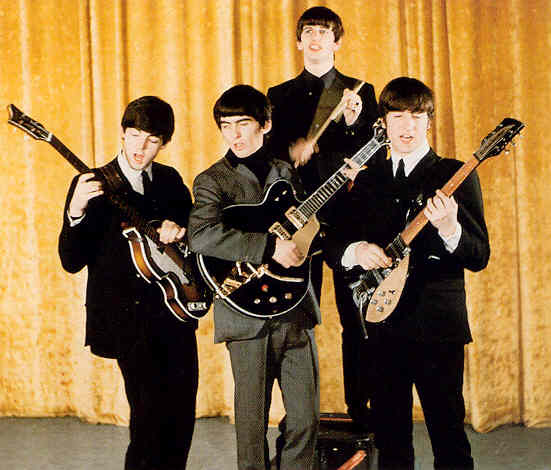
The Beatles: Paul McCartney,
George Harrison, Ringo Starr and John Lennon – 1964
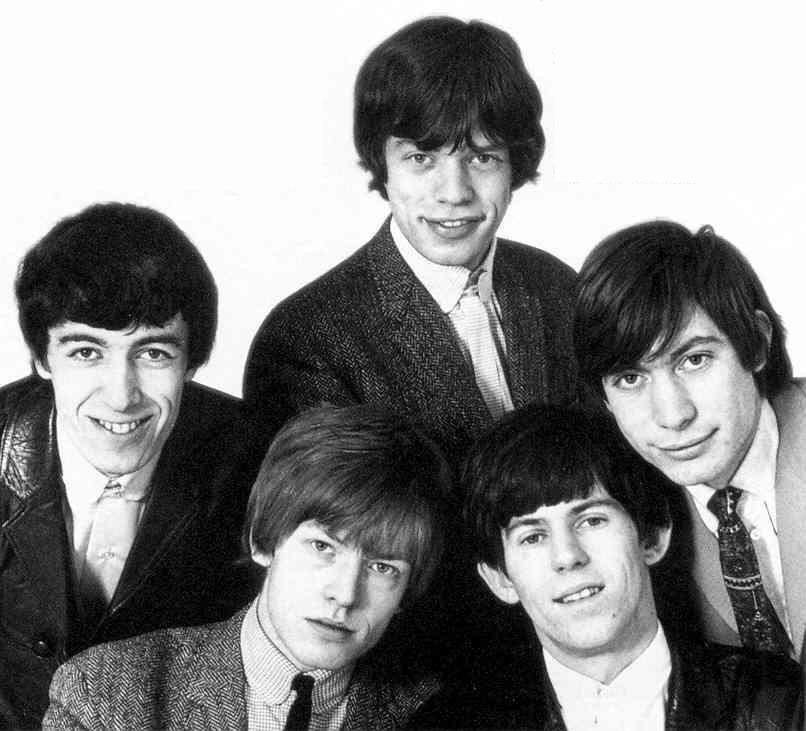
The Rolling Stones –
1965
Top center: MickJagger;
bottom left to right: Bill Wyman, Brian Jones,
Keith Richards and
Charlie Watts


|
BUT
AS THE 1960s PROGRESS, THE BOOMER YOUTH TURNS MORE
"COUNTER-CULTURAL"
|

|
|
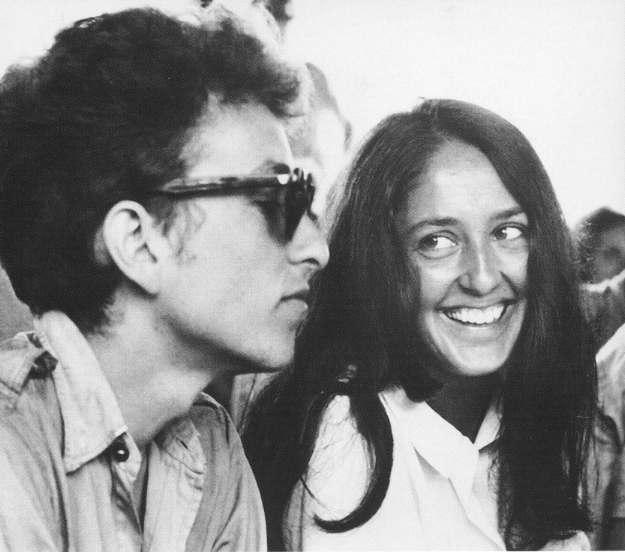
Bob Dylan and Joan Baez (both
22) in a 1963 hootenanny in New York
(both artists picked up
early on the social consciousness trend of the 1960s youth)
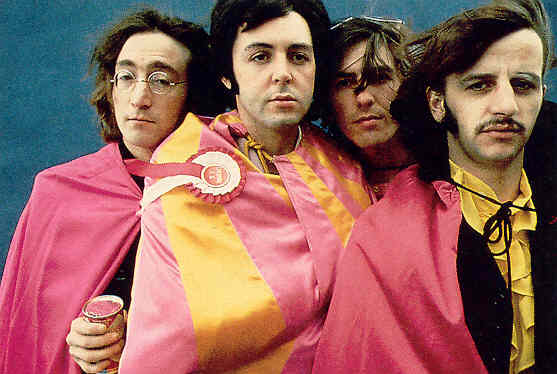
The Beatles
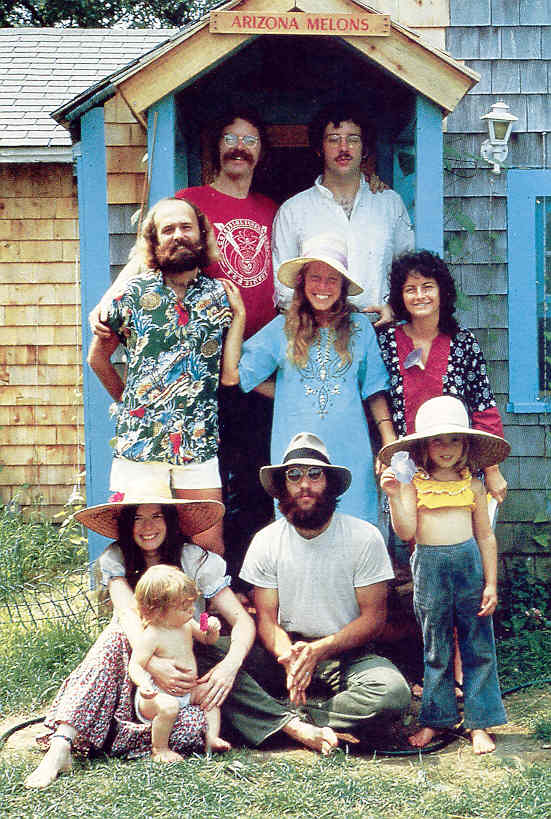
Members of a hippie commune
on Martha's Vineyard.
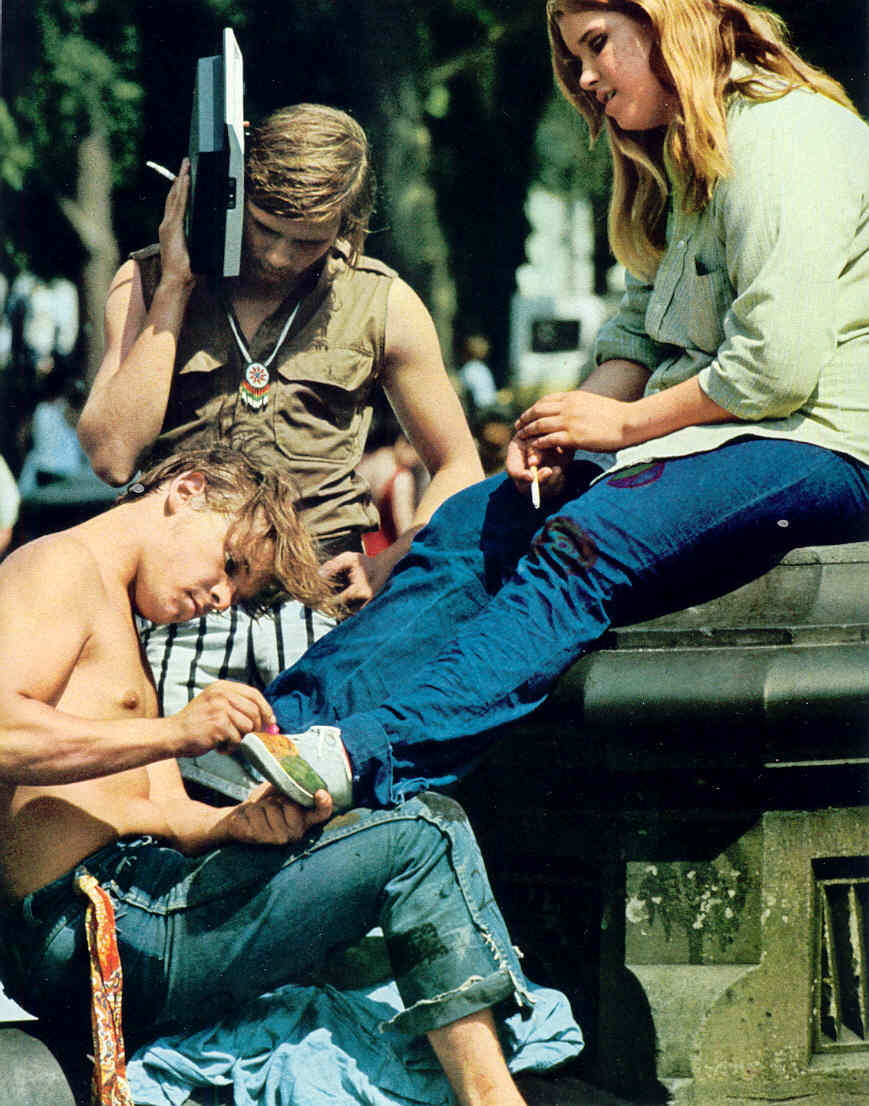
1960s youth in Central Park
painting a psychedelic design on his girlfriend's sneakers
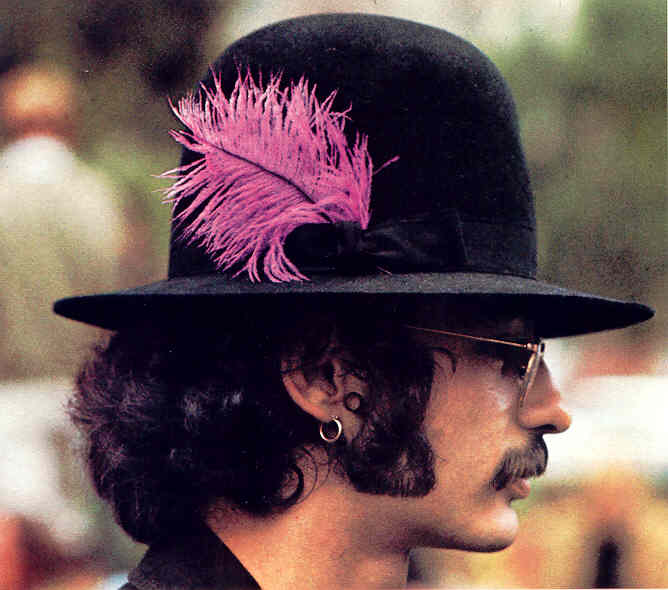
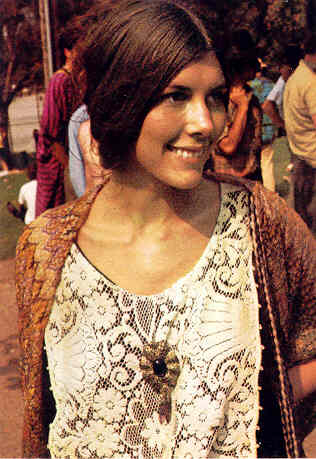
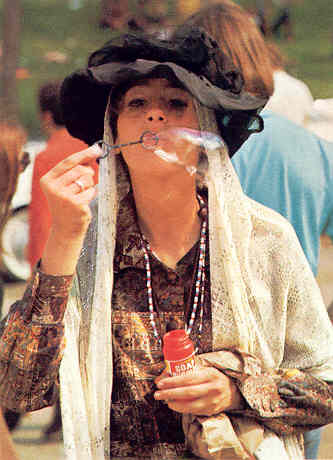
Participants in a Los Angeles
"love-in"
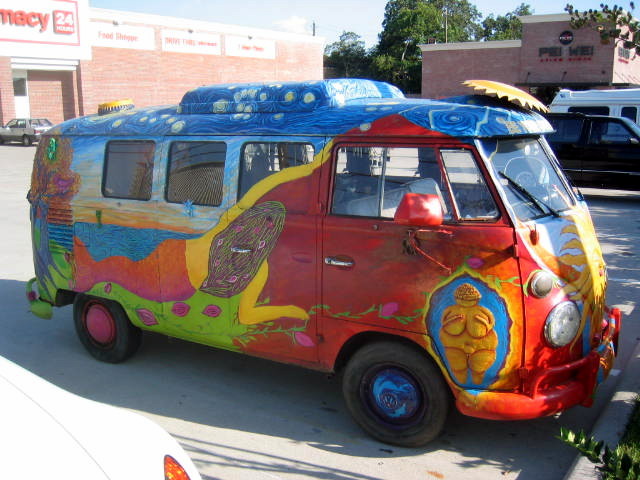
Be Your Own Goddess art bus
(1967 VW Kombi)
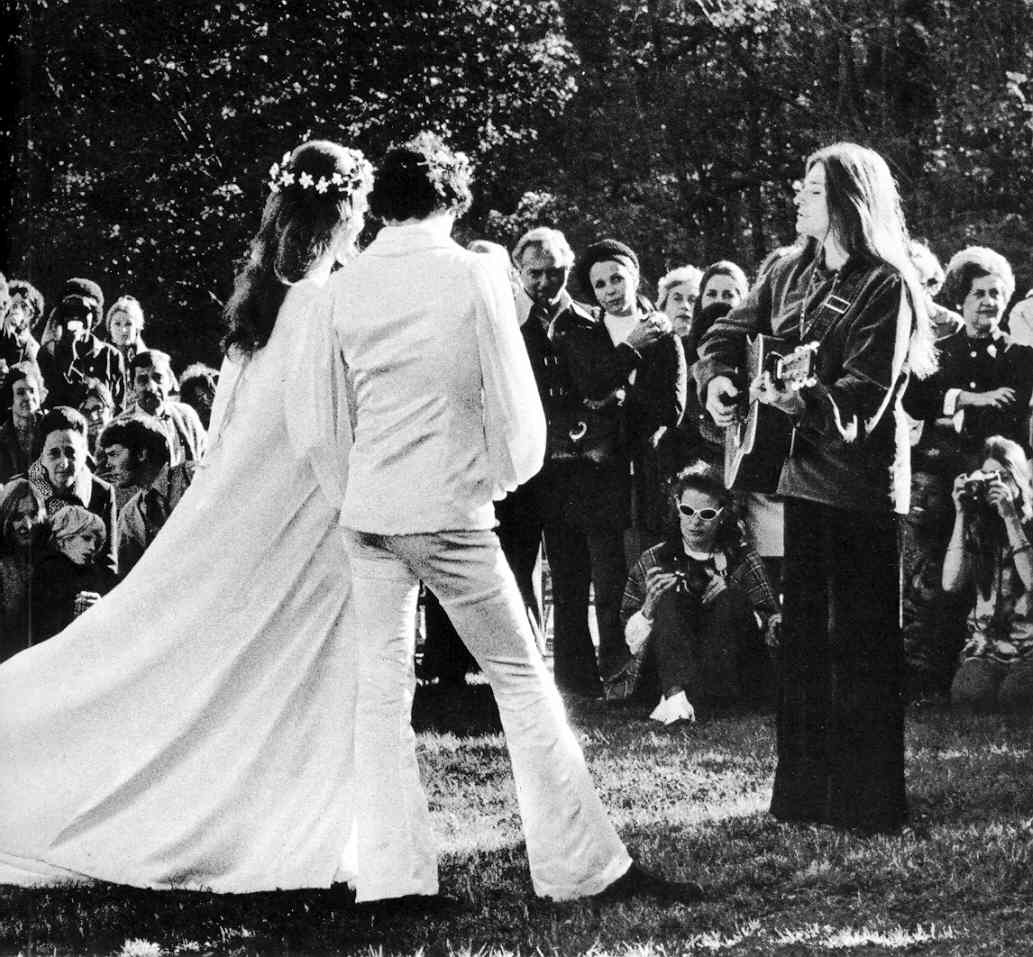
Arlo and Jackie Guthrie being
serenaded by Judy Collins at their outdoor wedding
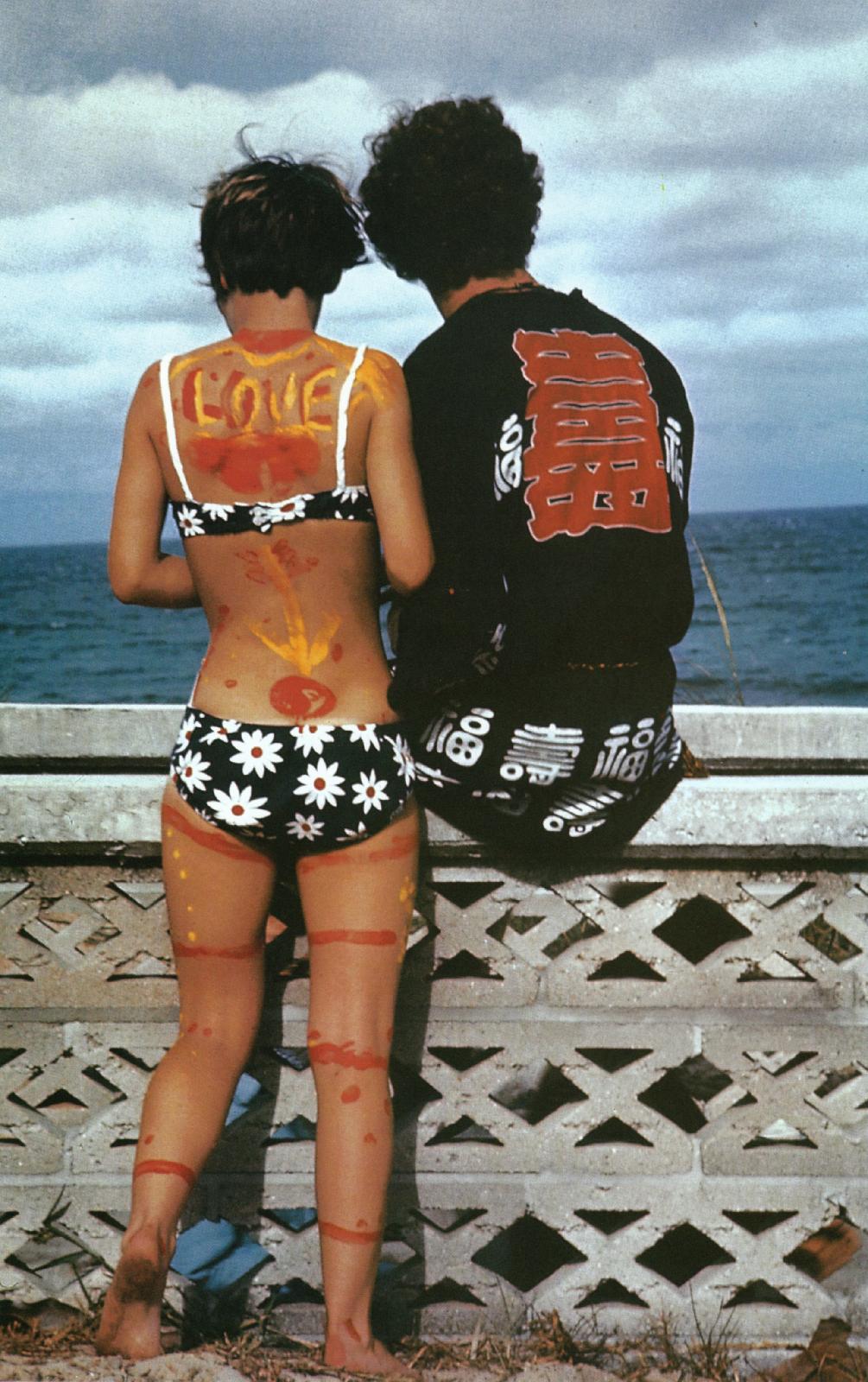
For many young "Boomer" Whites,
1967 was supposed to be a summer of "hippy" love
(But: 128 cities were
hit by race riots in 1967)
Recreational drugs were also
supposed to be part of the age of youthful bliss.
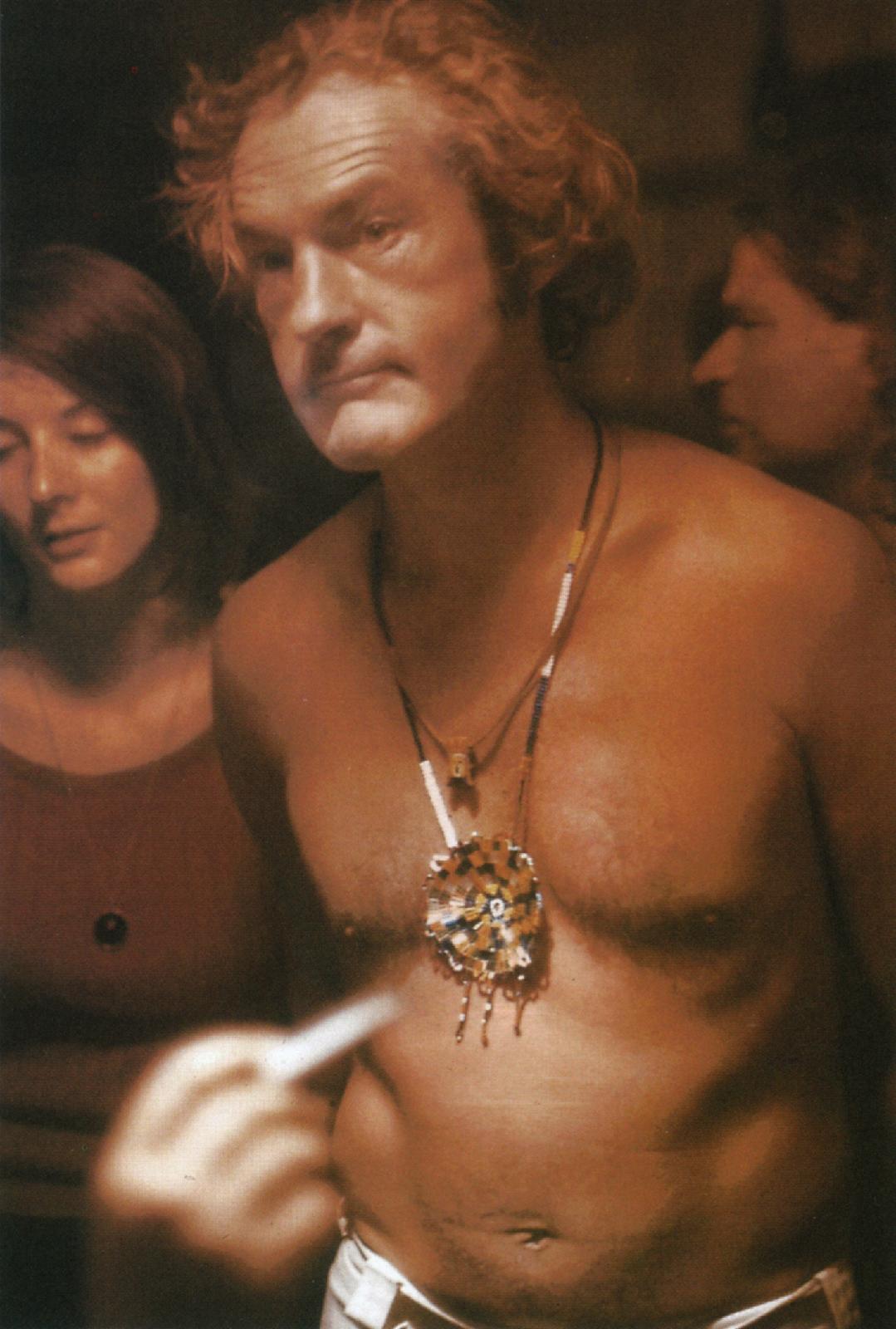
Timothy Leary – lost his
Harvard professorship advocating drug-use for "religious" purposes
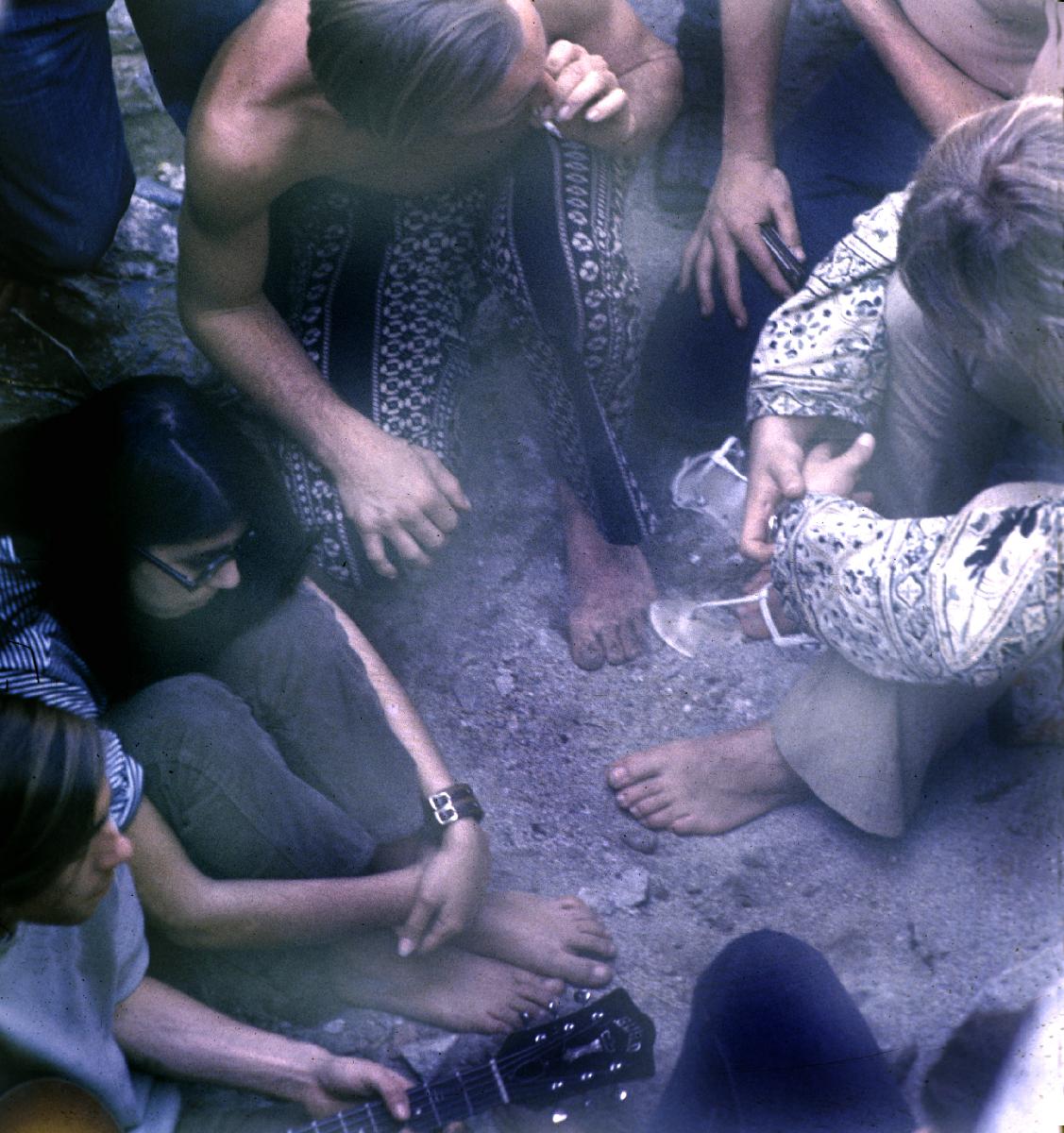
Sharing a joint in Tahquitz
Canyon, Palm Springs, California
And the idea of "religion"
took on a greatly expanded meaning
For Boomers, this was supposed
to be the “dawning of the Age of Aquarius”
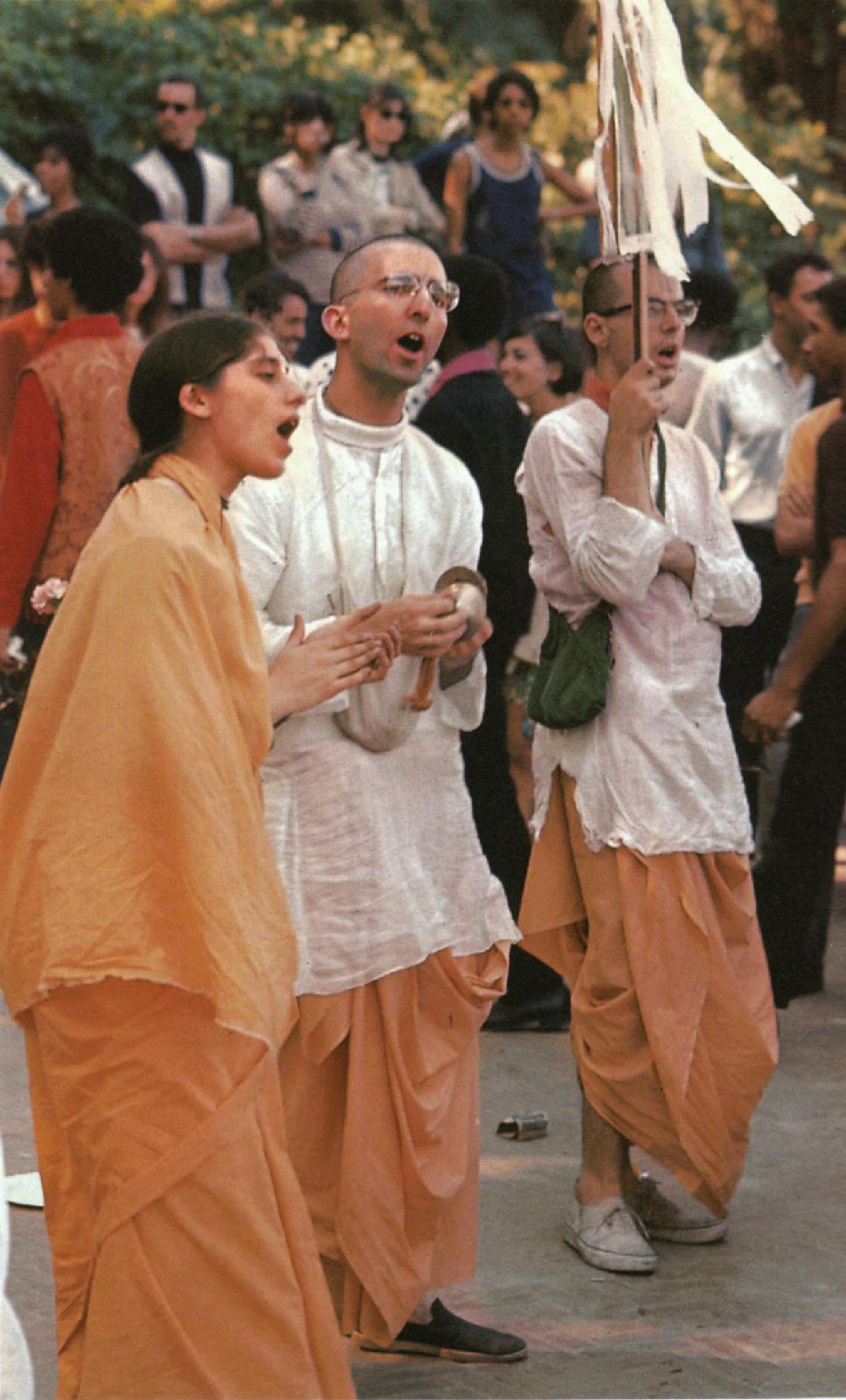
Hare Krishna devotees -
1967
This was also supposed to
be an age in which the younger generation of Boomers was
supposed to stand against the hypocrisies
(even tyranny) of the middle class culture of
older American generations ... and set American culture
"free" to be the untarnished
model culture for the world
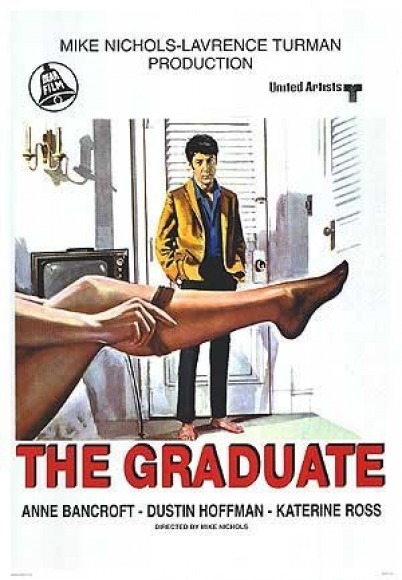
Dustin Hoffman starring in
the hit movie "The Graduate" – 1967
He portrayed a listless
youth who was unwilling to be drawn into the plastic world of his parents,
who was seduced by a close friend of his parents
(the hypocritical and scheming Mrs. Robinson),
and finally found freedom by breaking himself and his girlfriend (Mrs. Robinson's daughter)
free from the clutches of
the shallow adult world.


|
BY THE MID-1960s THE YOUTHFUL COUNTER-CULTURALISM IS TURNING
INCREASINGLY
MILITANT
|

|
|
It is now the fashion of
Boomer youth and their university mentors (professors and grad
students) to blame
America for all the sins of
the
world. They regard America as the
primary cause ... and primary solution
... to the world's problems – and they (the utopianist
intellectuals) are confident that they hold all the answers necessary to
solve those problems.
Anyone who begs to differ
with them simply represents
the unenlightened views of dead American
traditionalism.
The "Age of Aquarius" indeed
has finally arrived. Get out of the way old world!
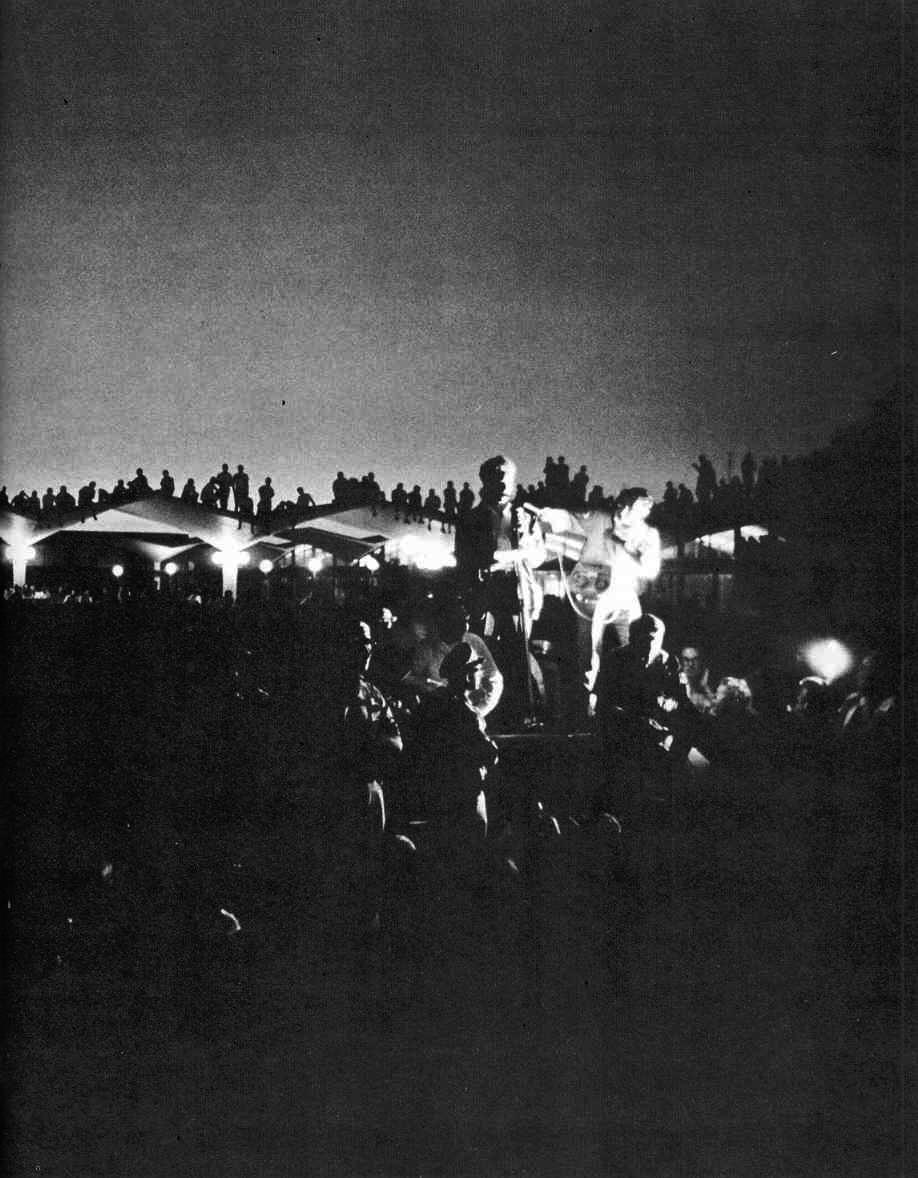
The start-up of the Free
Speech Movement (FSM) on the Berkeley campus – October 1, 1964
(student speakers standing
on top of a captured police car – decrying the University's
policies on a broad range of issues)
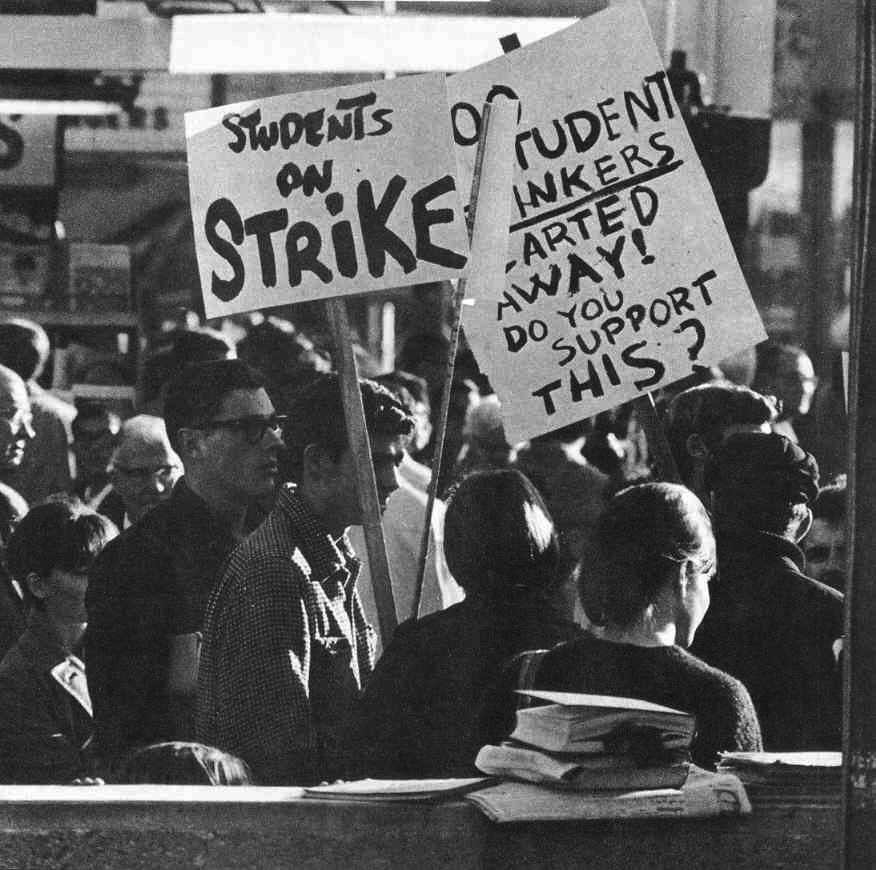
The Free Speech Movement
on the Berkeley campus – late 1964 – early 1965
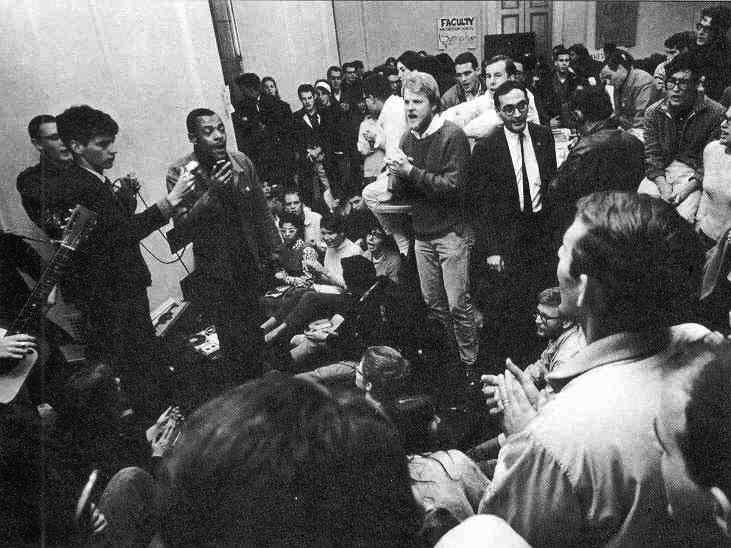
A faculty member showing
support for the FSM
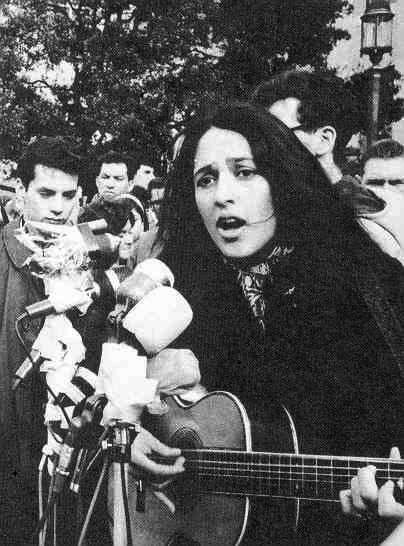
Popular folk singer Joan
Baez demonstrating her support for the FSM
One of the big issues of
the day was the military draft – the ticket to the war in Vietnam
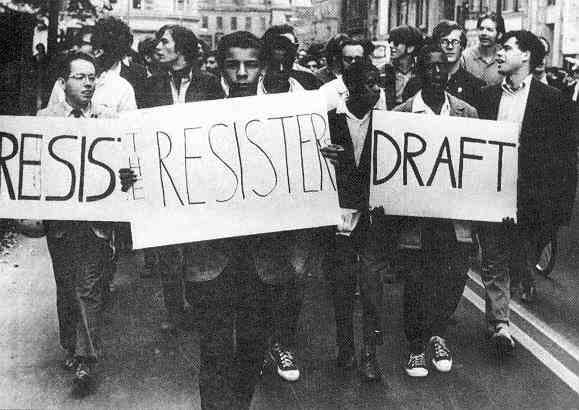
A march in Boston in protest
against the stepping up of the draft – 1965
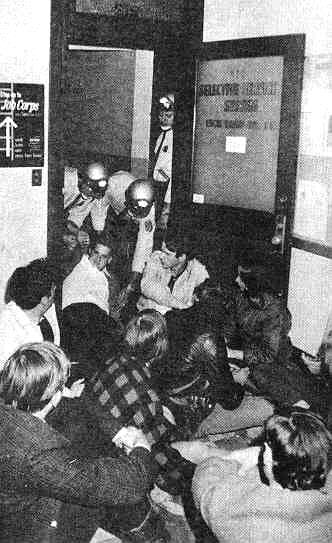
Police clearing out students
at an anti-draft sit-in at the Selective Service office
in Ann Arbor, Michigan –
October 15, 1965
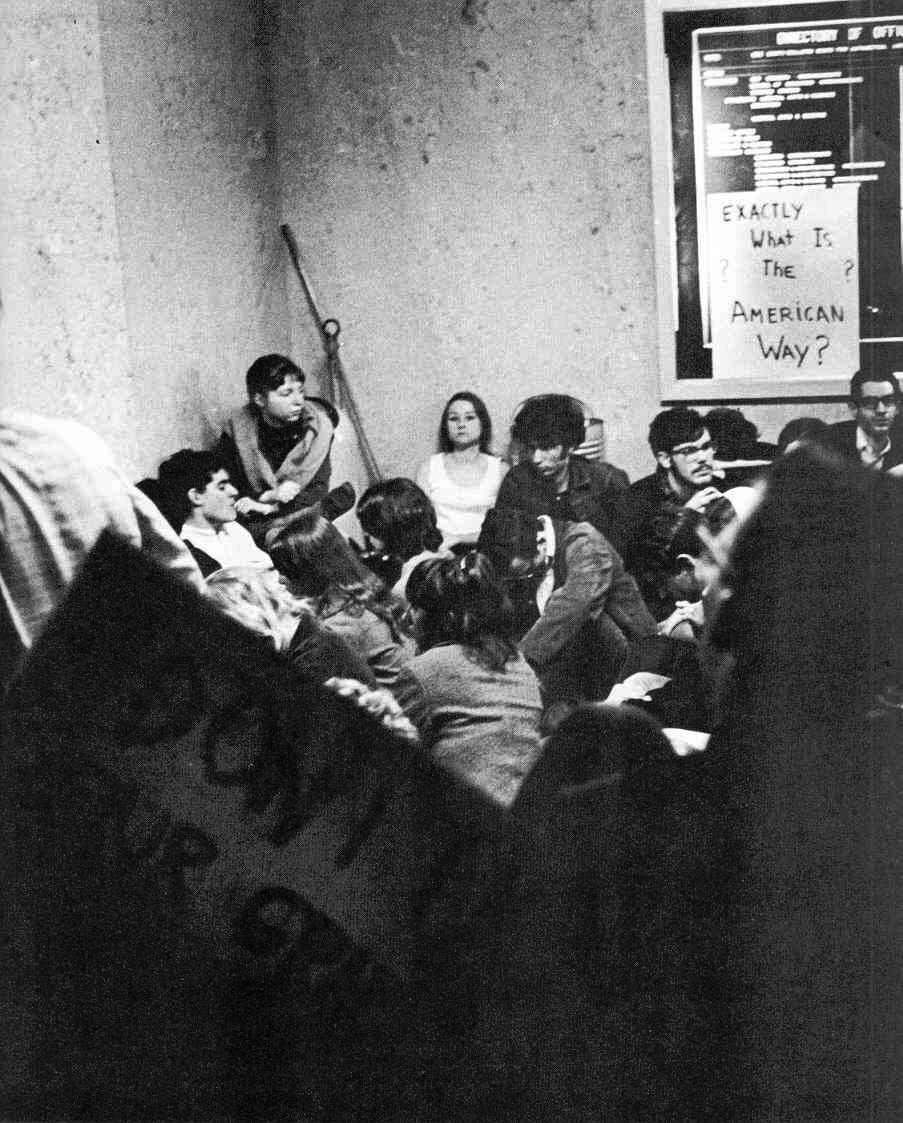
A sit-in demonstration at
the City College of New York – June 1966
in protest against the releasing
of student class standings to draft boards


|
THE
OCTOBER 1967 MARCH ON THE PENTAGON
|

|
|
In October of 1967 thousands
of American youth converged peacefully on the Pentagon
to demonstrate the proposition that what
the world needed was more "flower power"
and less military power.
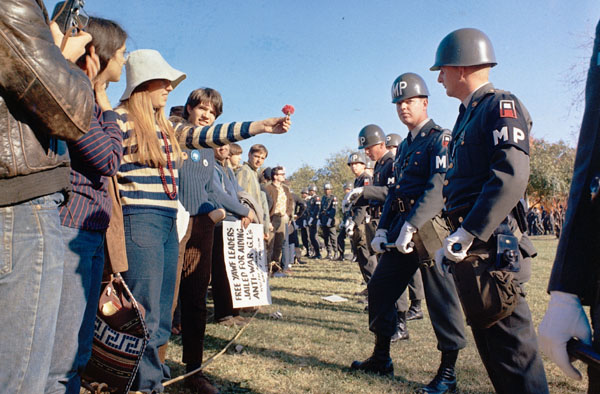
"A female demonstrator offers
a flower to military police on guard at the Pentagon
during an anti-Vietnam
demonstration"
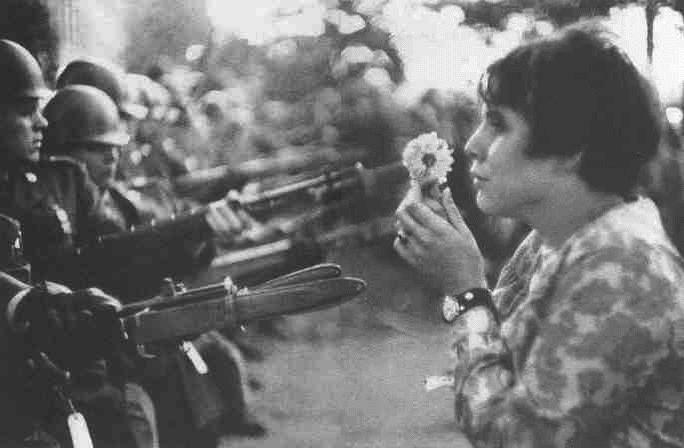
A "Peacenik" at the March on
the Pentagon – 1967
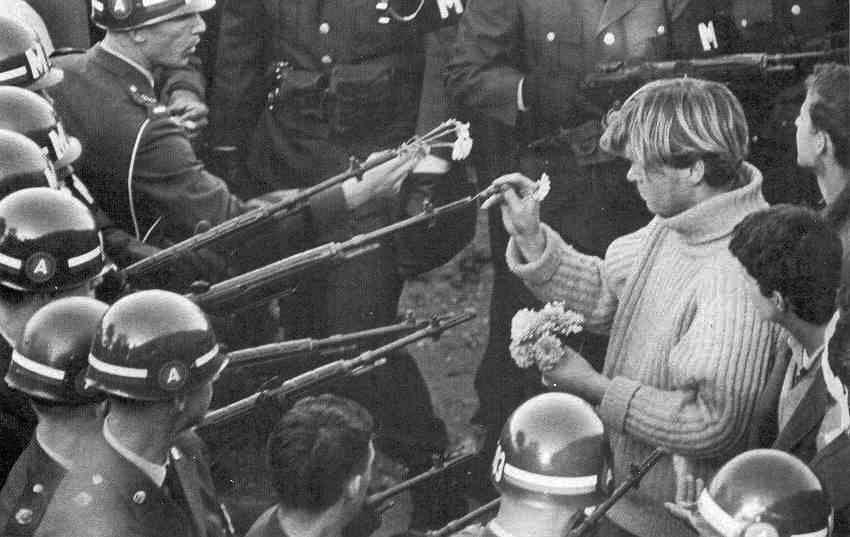
March on the Pentagon protesting
the Vietnam War – 1967
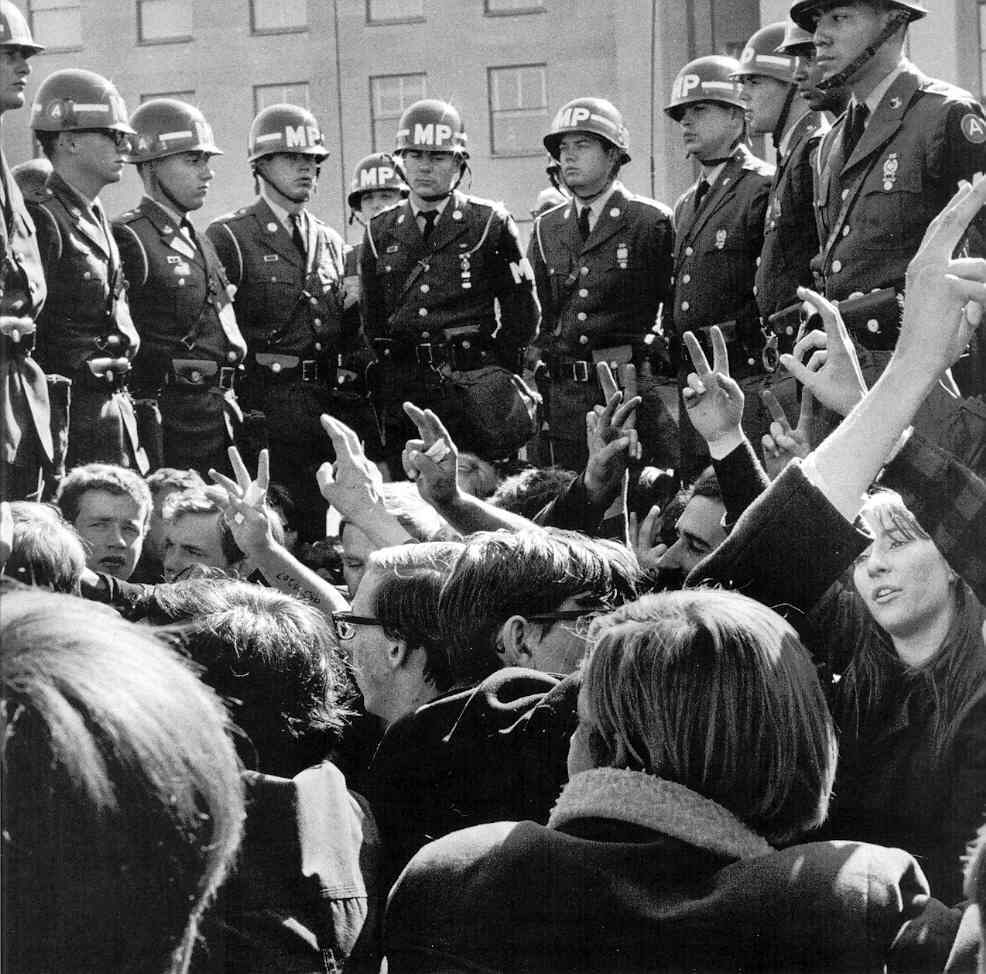
March on the Pentagon –
October
1967
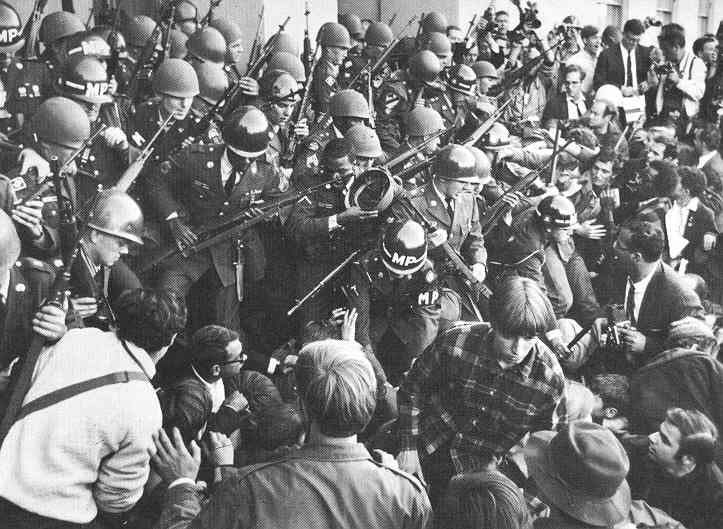
The anti-war protest at the
Pentagon – October 1967
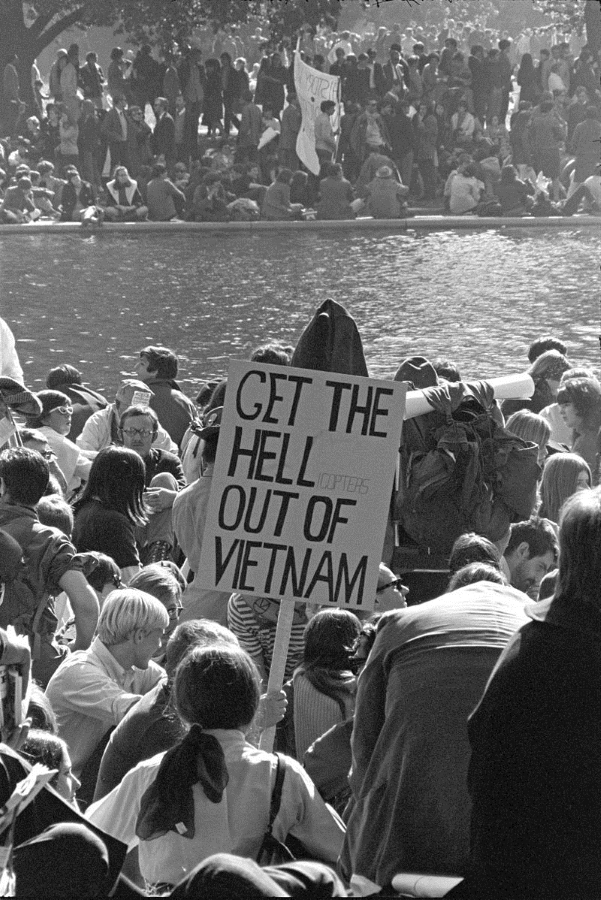
The anti-war protest at the
Pentagon – October 1967


|
YOUTHFUL "CONCERNS" BECOME ANGRIER
|

|
|
As demonstration spread around
the country this demonstration of the youths' concerns about
how the adults were shaping
their world became angrier – a foretaste of things to come.
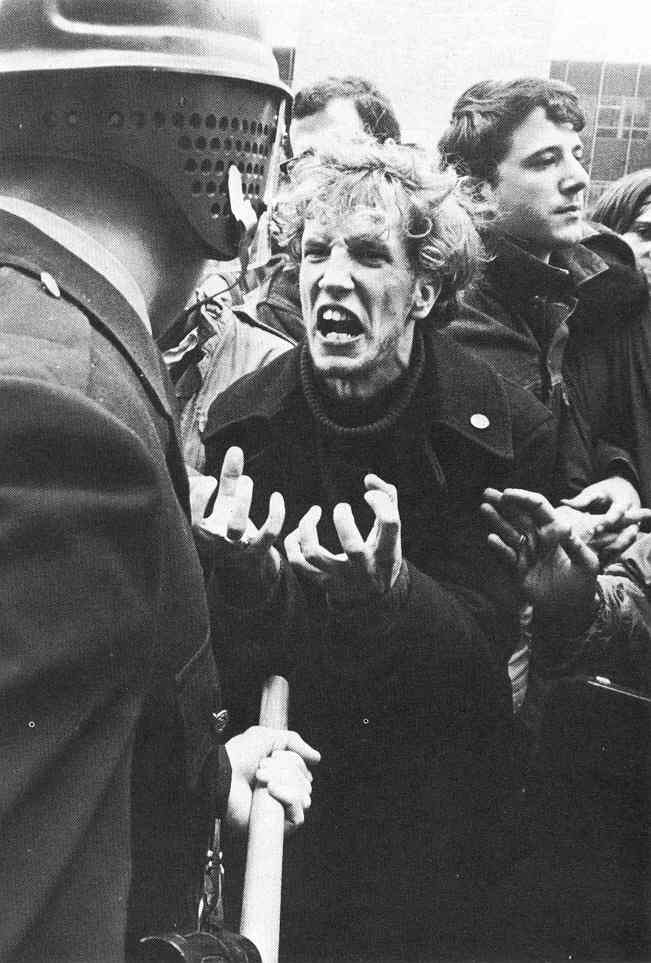
"Dirty Fascist" screams an
angry University of Wisconsin protester at police – October 1967
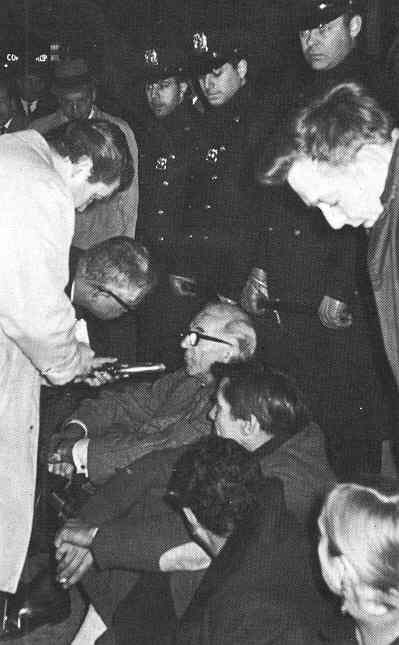
The arrest of Dr. Benjamin
Spock and anti-war protesters at a New York Induction Center
December
1967
 Miles
H. Hodges
Miles
H. Hodges

 The political emergence of the Boomers
The political emergence of the Boomers
 In the early 1960s, youthful idealism has an innocence about it
In the early 1960s, youthful idealism has an innocence about it
 But
as the 1960s progress, the Boomer youth are more "counter-cultural"
But
as the 1960s progress, the Boomer youth are more "counter-cultural"
 The youthful counter-culturalism becomes increasingly
militant
The youthful counter-culturalism becomes increasingly
militant
 The
October 1967 March on the Pentagon
The
October 1967 March on the Pentagon
 The
youthful "concerns" become angrier
The
youthful "concerns" become angrier 









































 Miles
H. Hodges
Miles
H. Hodges